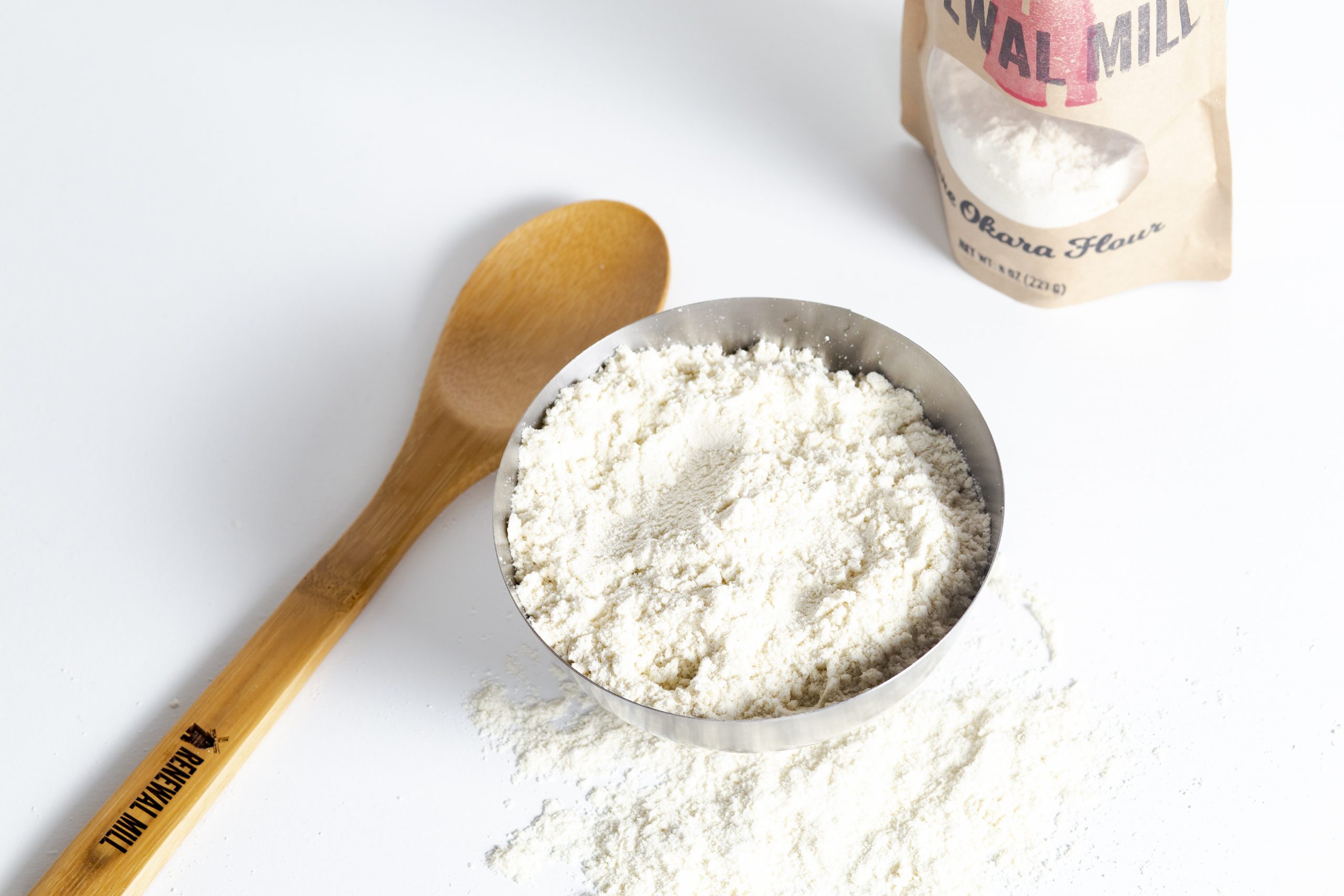Upcycling company offers solution to fast-growing oat milk market’s food waste problem
Upcycling food ingredient manufacturer Renewal Mill recently announced plans to convert the leftover pulp from oat milk production into flour. Renewal Mill launched a $1 million crowdfunding campaign to support the oat flour upcycling project.
Renewal Mill chose to upcycle oat flour because of the growing popularity of oat milk, says Caroline Cotto, chief operating officer at Renewal Mill.
“We have been looking at plant-based milk byproducts. The functionality of oats made sense, and there is a lot of excitement around oats with oat milk, yogurt, and ice cream products,” she says.
Second most popular plant-based milk
Oat milk recently passed soymilk as the second most popular plant-based milk behind almond milk according to market research firm SPINS. Oat milk sales have grown to $213.35 million in the past year. This includes an astounding 350.8% growth for refrigerated oat milk brands such Oatly and Oat Yeah from Silk.
Oats also have a sustainability advantage to almonds, which require large amounts of water, because they help to reduce herbicide use and soil erosion as a third crop in a corn-soybean rotation. They can also cut the need for fossil-fuel based nitrogen fertilizers to help minimize greenhouse gas emissions. Oat milk market leader Oatly is collaborating on a program to source oats from Midwest farmers to give them another source of income.
Upcycling oat pulp into a nutritious flour
Renewal Mill’s business model involves installing proprietary dehydration equipment in plant-based milk manufacturers’ facilities. The equipment dries the pulp leftover from oat or soymilk production, which is then milled into flour. The plant-based milk manufacturers pay to process the pulp. Otherwise they would have to pay to have the pulp hauled away and spread onto fields or dumped into landfills. Nearly a pound of pulp is created to produce a pound of oat milk, which adds up to millions of pounds of pulp produced each year for a manufacturer. By making the pulp into a nutritious and versatile flour, Renewal Mill is helping to reduce food waste, which is a multi-billion dollar problem worldwide and a major contributor to climate change.
Renewal Mill has successfully upcycled okara from soymilk production into flour and products such as a dark chocolate brownie mix and vegan chocolate chip cookies.
Several food manufacturers such as Pulp Pantry, Humphry Slocombe, and Tia Lupita Foods are using Renewal Mill’s soy okara products. They are also sold at retail outlets such as Good Eggs and Whole Foods.
Companies interested in upcycled oat flour
Renewal Mill sees upcycling oat flour as the next logical step. “When looking at the nutritional value, sales potential, and food safety, oat was a natural fit,” Cotto says.
The upcycled oat flour is high in fiber and protein, is gluten-free, allergen-free, and has a neutral flavor.
Renewal Mill plans to sell the oat flour as a retail product and use in different baking mix products. Cotto says potential customers are lined up to buy the upcycled oat flour. “Companies are really interested in the oat flour.”
The $1 million crowdfunding campaign will help Renewal Mill expand into oat flour upcycling. The campaign allows individuals to own a stake in Renewal Mill for as little as $50.
Looking to the future, Renewal Mill has plans to produce upcycled products from sunflower seeds and pea protein.
Renewal Mill is also a founding member of the new Upcycled Food Association, and Cotto serves as a board member.
“There is an incredible amount of momentum around upcycled foods,” she says. “The last 18 months have seen a lot of growth with retail partners and food producers.”
Cotto predicts upcycled food will be a top 10 food trend in 2021.





